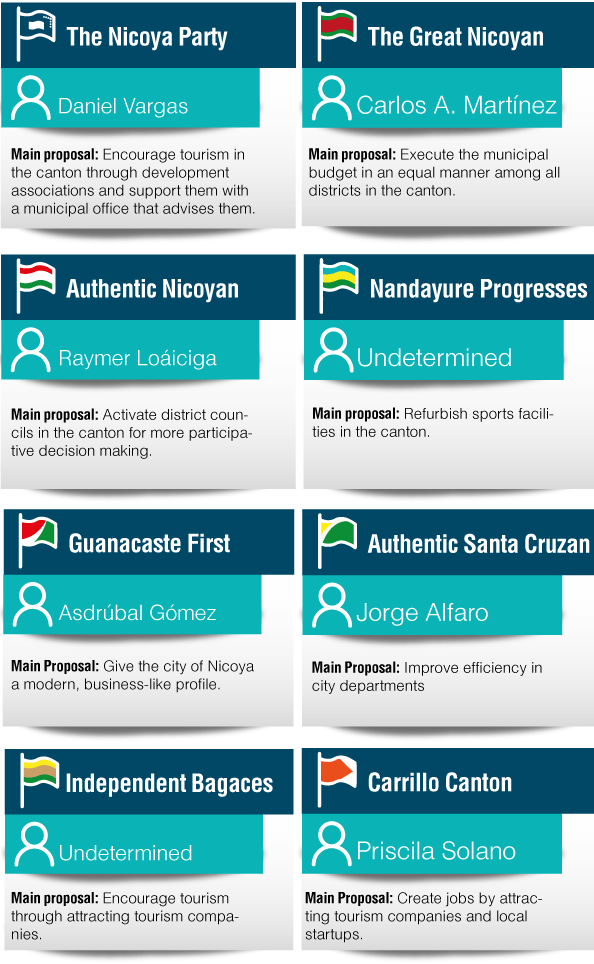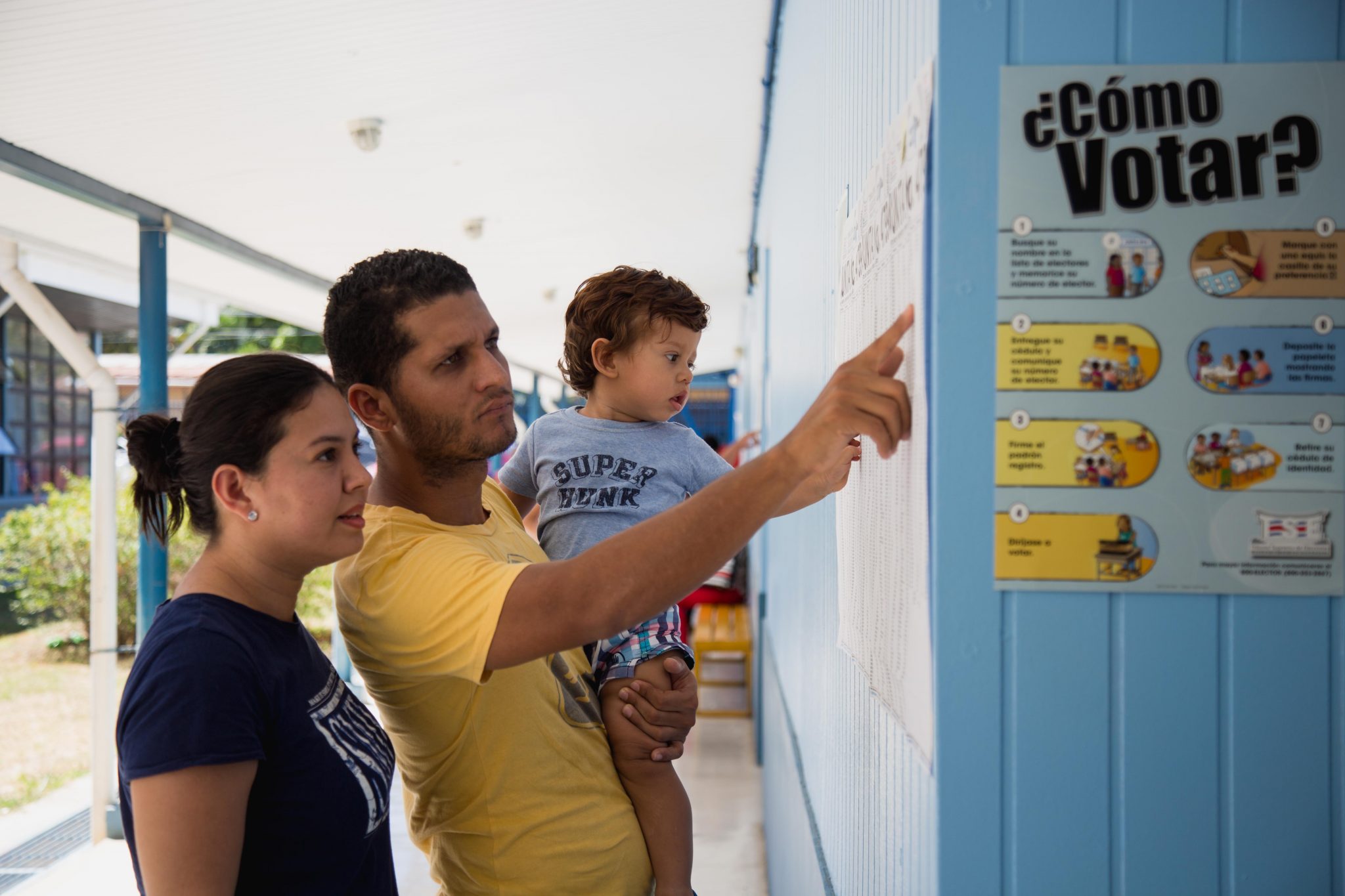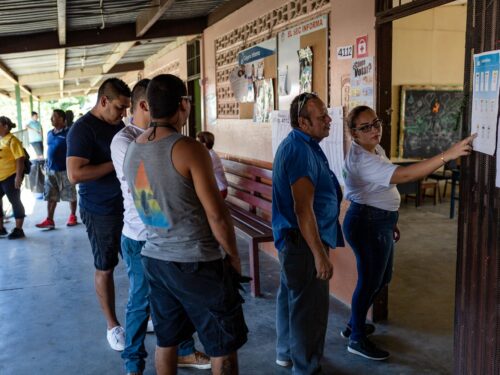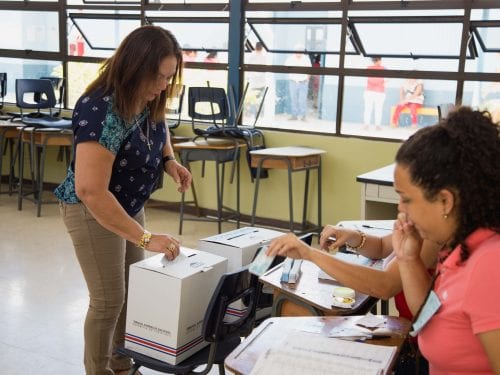
For the first time in the history of municipal elections, Guanacaste will have eight new options of political parties, four of them in Nicoya and the rest in Santa Cruz, Carrillo, Bagaces and Nandayure. But not all the faces are new. Many of the representatives already have had a political journey.
Just in Nicoya, Authentic Nicoya, The Great Nicoya, Guanacaste First and The Nicoya Party were formed. The list is finished off by Authentic Santa Cruzian, Carrillo Canton, Independent Bagaces and Nandayure Progresses. The electoral authority (TSE) has until June to confirm their official formation. But the boom of these new parties is a new element. In 2016 there were no parties from the canton that registered for the province, despite 43 of these type of parties participating in the country.
Sick of Traditional Politics
Some of the candidates for mayor in the province created their own political parties, tired of traditional politics, such as in the case of Raymer Loáiciga from Authentic Nicoyan, who used to be a member of the Social Christian Unity Party (PUSC). Carlos Martínez of The Great Nicoyan is another example as well as Asdrúbal Gómez from Guanacaste First, both with a past in National Liberation Party (PLN).
These three candidates assure that they are bothered by the traditional politics of the parties they belonged to.
“It can’t be that the traditional parties hand pick candidates for mayor,” Loáiciga said, adding that the PUSC told them from San Jose who should be the candidate. That’s why he proposes choosing Authentic Nicoya candidates and representatives in an assembly in a democratic way.
In the case of The Great Nicoya, their candidate for mayor is Carlos Martinez, director of the Corrallilo technical professional college. His party uses the same Facebook profile as the Nicoyan Coalition (the political coalition that was formed to support Carlos Alvarado in the national elections in 2018) but Martinez says that his base is made of members of all political colors.
“Not all the members of the party were in the coalition. Some of us did meet there,” Martinez says.
Independent Bagaces and Nandayure Progresses were created by the sons of the current mayors in those cantons, William Guido and Giovanni Jimenez. The current mayors of Bagaces and Nandayure neither confirmed nor denied running for mayor with those parties in the next election.
Both parties received advice from Mauricio Muñoz, director of the Political Opinion Consulting Group (OPOL). That same company published several surveys in conjunction with elmundo.cr and advised National Restauration Party in the 2018 elections.
Candidates for Carrillo and Santa Cruz also have a past in politics. Priscila Solano of the Carillo Canton was candidate for congresswoman with the Liberatarian Movement in the presidential elections of 2018. She was also president of the tourism chamber in Guanacaste and president of the Guanacaste federation of people with disabilities.
“It’s the first cantonal party in Carrillo and the first time that there is a woman running for mayor,” Solano said, adding that she will fight for the social inclusion of people with disabilities.
Jorge Alfaro of Authentic Santa Cruzan is the principal of the Santa Cruz High School. He was candidate for mayor in 2016 for the National Integration Party (PIN) and candidate for congressman with the same party in 2018.
Alfaro said that PIN hadn’t fulfilled his expectations for the canton but wouldn’t give further details, saying that the question was aimed at creating controversy.

Divorce between priorities and necessities
Political analysts and candidates for mayor agree that the needs of cantons aren’t always reflected in the interests of traditional political parties.
“The demands of the electorate at the municipal level tend to be very basic. For example, if a mayor guarantees me that he will collect trash on Tuesdays and Fridays, that’s attractive to me,” explains political scientist Daniel Calvo.
Calvo said that, in exchange, traditional parties propose more general topics like the creation of employment applying the “same recipe” for all cantons in the country and don’t consider the particular needs of each community.
“It’s not the same to have a campaign about employment in a city like San Pedro as it is in Hojancha”, he said.
Following the same line of logic, Jorge Alfaro from Santa Cruz and Priscila Solano from Carrillo said that they formed part of political parties in the canton so that “no one in the central valley” tells them what to do in their cantons.
On top of the divorce of interests is the ease of creating a political party at the cantonal level, explained University of Costa Rica political analyst Gina Sibaja.
“It’s an easy way to get around traditional parties in order to avoid going through internal processes at the cantonal and provincial levels,” Sibaja said.
In order to explain the appearance of four parties in Nicoya, Sibaja said that this is the result of a deeply rooted identity in a part of the Nicoyan population who seek new leadership and don’t find it in traditional political structures.
She also said that the investigation into alleged crimes in recent months by the attorney general’s office against some politicians like the mayors of Nicoya and Santa Cruz is another reason that influences the appearance of new political parties.







Comments